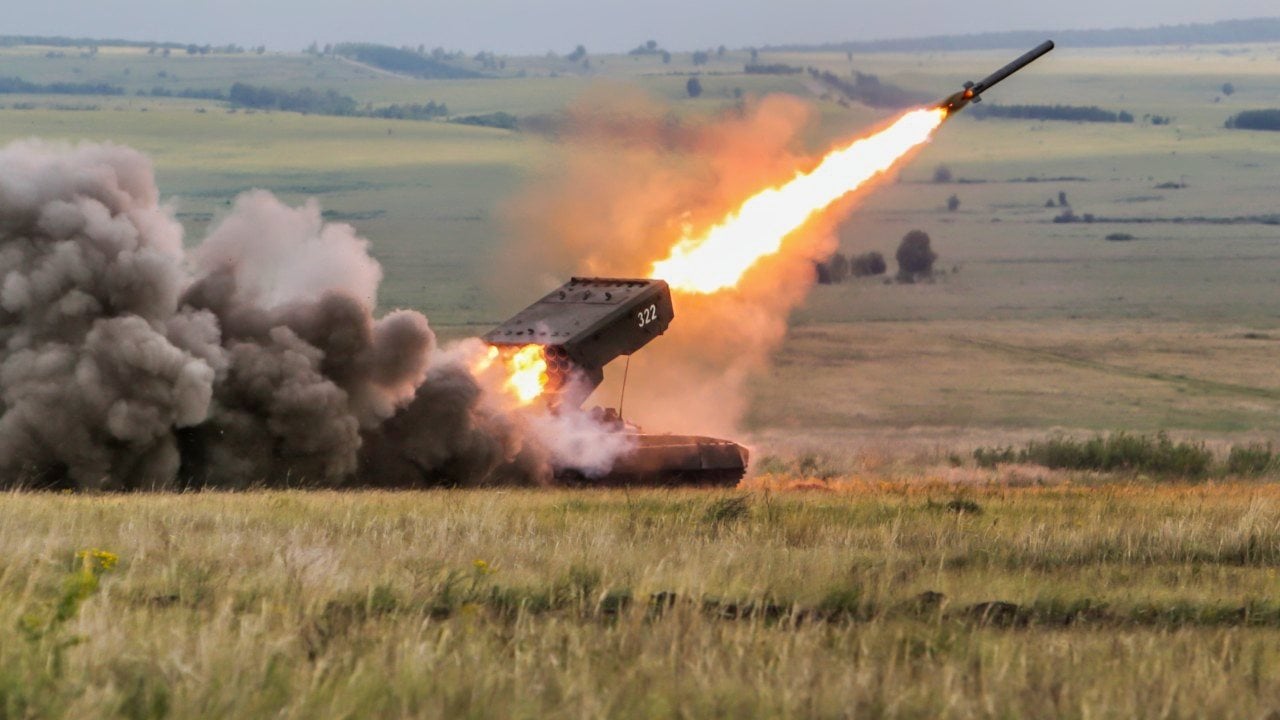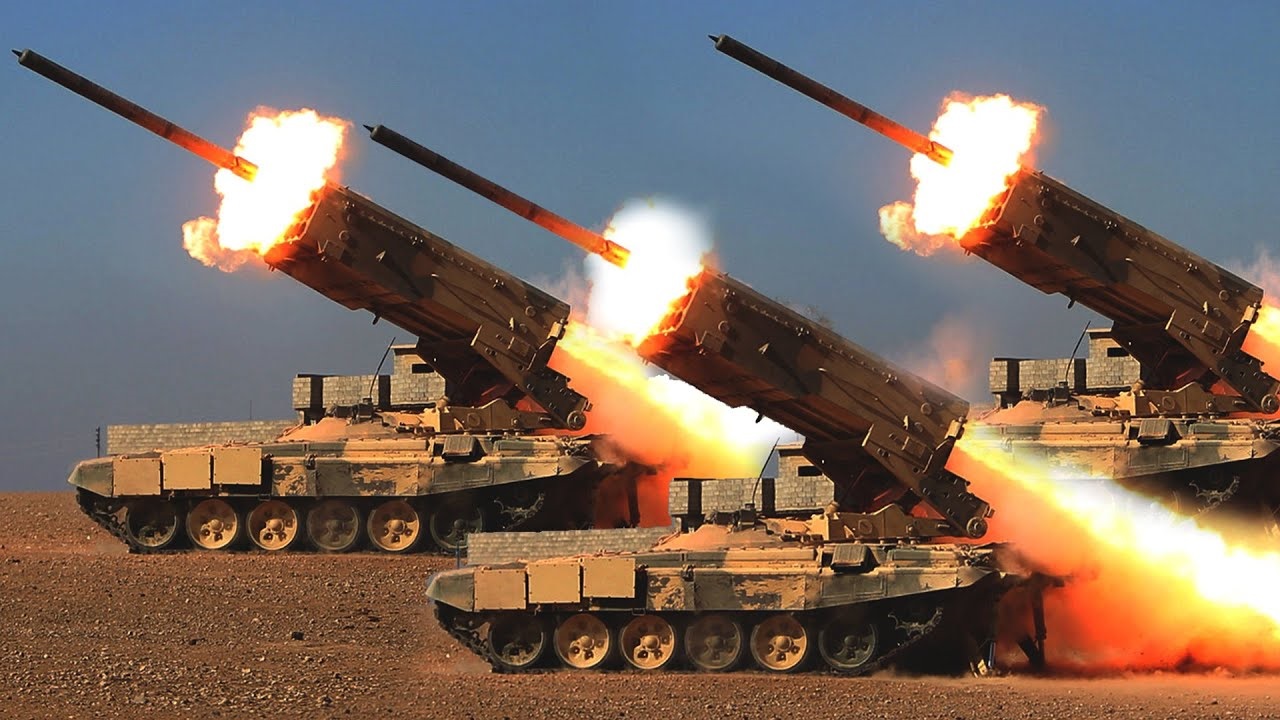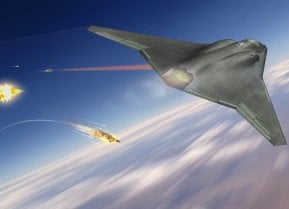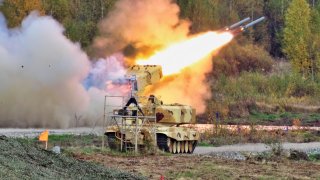America Must Grapple With the Limits of Ukraine's Kursk Offensive
Future U.S. administrations should use the example of the Kursk incursion to remember something that too often has been forgotten in the era of U.S. hegemony: what looks like victory today can turn into disaster tomorrow, and that the course of any war is impossible to predict.
The West rapturously greeted the Ukrainian military’s early August incursion into Russia’s Kursk Oblast as a sign that the tide of the war was turning in Ukraine’s favor. But a month on, it’s clear that the incursion did little to change the facts on the ground, and that if Ukraine and its supporters don’t do everything in their power to initiate negotiations with Russia, more people will suffer and die.

Any analysis of the incursion must begin from the reality that it did generate positive results for Kyiv on several fronts. But those have come at a cost whose full effect may only emerge over time, especially given that the Russian military has begun to mount a serious counteroffensive that threatens to transform Ukraine’s incursion from a tactical draw into a military disaster.
Before August, Ukrainian military activity inside Russia had been confined primarily to shelling along the border and drone/missile strikes deeper inside Russia, along with occasional acts of sabotage and cross-border raids by groups identified as Russian dissidents who were pro-Ukraine. The Kursk incursion that began on August 6, in contrast, marked the first acknowledged invasion of Russian territory by the regular Ukrainian military since the war began in February 2022.
Initially, the incursion appeared successful, likely more successful than the Ukrainians themselves had expected, as Russian border guards, as well as lightly-armed and undertrained conscripts, were unable to withstand the advance of some of the Ukrainian military’s most seasoned and best-equipped units. By late August, Ukrainian military commander Oleksandr Syrskyi was boasting that the operation had seized over 1,300 square kilometers of Russian territory and more than 100 settlements.
The benefits of this sudden and dramatic success were clear. Most importantly, the incursion provided Ukrainian leaders with a large pool of new prisoners. Syrskyi has claimed nearly 600, which has enabled Kyiv to negotiate two prisoner swaps with Moscow that together witnessed 218 Ukrainian prisoners of war freed.
Beyond this, the Kursk operation has had other, less tangible benefits. Ukraine’s success in taking a substantial amount of Russian territory seems to have reinvigorated Western support for the Ukrainian war effort after a period when such support was attenuating. Right now, the U.S. and European governments are seemingly on the verge of approving the widespread use of Western-made arms to strike targets inside Russia, and might even be ready to provide Kyiv with longer-range arms for the same purpose.
Though it’s difficult to know for certain, watching the Ukrainians likely invade Russia without triggering a massive retaliation caused Western governments to reconsider their fears about overstepping a Russian red line. The incursion also appears to have improved Ukrainian morale, which had deteriorated following last year’s failed counteroffensive and amid steady Russian gains in eastern Ukraine over the first seven months of 2024.
Nevertheless, these gains have also come at significant costs.
Hopes that Moscow would redeploy forces from Ukraine to counter the Kursk incursion have mostly proven ephemeral. While the Russian military has moved some of its forces to respond to the Ukrainian operation, its advance on the logistically critical Ukrainian city of Pokrovsk has not been affected and if anything, has sped up since the Kursk incursion began.
Furthermore, Ukraine’s incursion has had no impact on the material fact that the Ukrainian military continues to suffer from manpower shortages. And predictably, morale remains low among the soldiers, many of them poorly trained conscripts, who are taking the brunt of the Russian offensive.
Simply put, and despite its benefits, there is no indication that the Kursk offensive has had any larger effect on the state of the war. It has not, for example, forced Vladimir Putin to the negotiating table, and the idea that the Ukrainians might be able to hold this territory long enough to impact hypothetical peace talks is extremely dubious.
As The Washington Post reported in mid-August, the incursion has quashed plans to hold indirect talks in Qatar that were intended to help reduce the intensity of Russian attacks on Ukraine’s energy infrastructure. With the Ukrainian power grid reportedly in tatters as winter approaches, this may prove to be a fateful outcome for the Ukrainian people.
Finally, the Russian military has in recent days begun what appears to be a full-scale counteroffensive in Kursk. This poses a dilemma for Ukraine and its Western backers. Do they insist on holding Russian territory even if doing so puts thousands of Ukrainian soldiers at risk of being killed or captured? Or will they take this opportunity to declare a limited victory, withdraw, and redeploy those soldiers to the Ukrainian defensive line where they could be of benefit?
Regardless of what Ukraine and its backers decide, more than a month after Ukraine launched its incursion, it’s clear that the facts of the war remain largely what they were before the invasion: Ukraine has a dwindling manpower base that simply cannot defeat the Russian military over time.
And though Western support for Ukraine has been reinvigorated, it is unlikely to remain at this high of a level for long, especially given that whichever U.S. presidential candidate wins in November will probably not be as committed to the war effort as the Biden administration, whose members have staked their place in history on defeating Russia.

For this reason, anyone who wants the war to end in a way that minimizes further suffering must do everything in their power to facilitate negotiations between Ukraine and Russia. If negotiations prove impossible, the war will continue, tens of thousands of more people will suffer and die, and little will be gained.
Above all, future U.S. administrations should use the example of the Kursk incursion to remember something that too often has been forgotten in the era of U.S. hegemony: what looks like victory today can turn into disaster tomorrow, and that the course of any war is impossible to predict.
About the Authors
Daniel Bessner is the Anne H.H. and Kenneth B. Pyle Associate Professor in American Foreign Policy at the Henry M. Jackson School of International Studies at the University of Washington. He is also the co-host of the podcast American Prestige.
Derek Davison is a writer and analyst specializing in international affairs and U.S. foreign policy. He is the publisher of the Foreign Exchanges newsletter, co-host of the podcast American Prestige, and former editor of LobeLog.
Image Credit: Creative Commons and/or Shutterstock.


